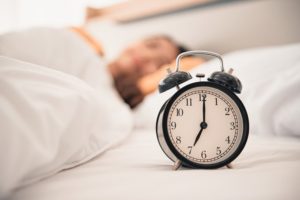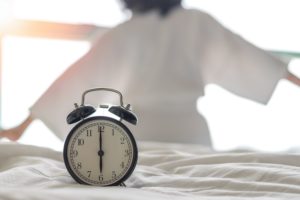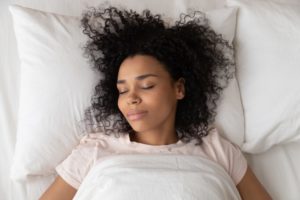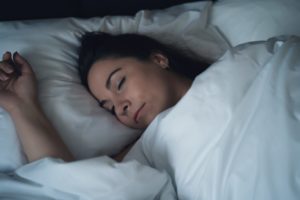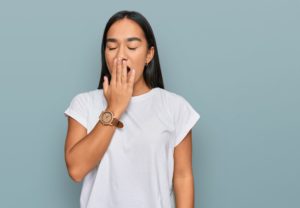When you buy through our links, we may earn a commission. Products or services may be offered by an affiliated entity. Learn more.
Long Sleepers
- Long sleepers need more sleep than the average adult, typically over 9 hours.
- In some people, longer periods of sleep may signal an undiagnosed illness or sleep disorder.
- Long sleepers may use a sleep diary to track their sleep patterns and daytime sleepiness.
- Understanding and accommodating individual sleep needs of long sleepers is essential for overall well-being.
Most people have experienced the occasional night of exceptionally long sleep. For those with long sleeper syndrome, extended periods of sleep each night can be a regular occurrence. Both children and adults can be identified as long sleepers, or people who need more sleep than average in order to wake up feeling refreshed.
A great deal is still unknown about long sleepers, but research has found that longer sleep duration is associated with a number of health conditions. We explore what it means to be a long sleeper, as well as potential causes and effects of long sleeping.
Looking to improve your sleep? Try upgrading your mattress.
What Does It Mean to Be a Long Sleeper?
Long sleepers are people who regularly sleep more than other people of the same age. In adults, this typically means sleeping for more than 9 or 10 hours per night.
Most long sleepers feel refreshed when they wake up from this extended sleep time. However, if their professional or social life prevents them from having long sleep periods, they may experience excessive daytime sleepiness.
Long sleeping does not have a clear cause. In this way, it is different from oversleeping that occurs because of an illness or after a temporary period of sleep deprivation. For this reason, long sleepers may also be called natural long sleepers. A person can become a long sleeper early in life or as an adult. In many cases, a pattern of extended sleep at night begins during childhood and continues into adulthood.
Symptoms of Being a Long Sleeper
Experts estimate that up to 2% of people are natural long sleepers. The primary symptom of long sleeping is regularly sleeping more than the recommended hours of sleep for your age group. In most cases, this means sleeping more than nine hours per night for adults and more for children and adolescents. Although some older studies found that long sleepers were more likely to wake up during the night and spend more time awake in bed, subsequent studies have not confirmed that finding. Instead, newer research suggests that long sleepers spend more time asleep than normal duration sleepers.
However, some natural long sleepers may not be able to sleep as much as they would like because of school, work, or social obligations. As a result, they may sleep less on weeknights but have especially long sleep periods, such as 12 hours or more, during the weekend when their time to sleep is unrestricted.
Excessive daytime sleepiness is another potential symptom of being a long sleeper. If long sleepers do not have enough time in their schedule to sleep as much as they prefer, they may feel sleepy or less alert during the day and experience issues with energy or attention.
Causes of Being a Long Sleeper
There is no sole cause of habitual long sleeping. Some experts believe that long sleepers may simply need more sleep than others. There are indications that there may be a genetic component to long sleeping, but more studies are needed to better understand why some people routinely sleep for more hours than others.
While some health conditions can cause oversleeping, that is different from natural long sleeping, which occurs habitually and without a known underlying illness or medical issue.
Health Effects of Being a Long Sleeper
The health effects of long sleeping remain unclear. Although studies have observed a higher risk of certain health problems in long sleepers, it is not known if those problems are actually caused by long sleeping.
In studies with large groups of participants, long sleepers have been found to have an elevated risk of cardiovascular problems , including heart disease and stroke, as well as diabetes. Statistical analysis has found a higher risk of death among long sleepers compared to people who sleep seven to eight hours per night. Long sleep duration also puts a person at greater risk for weight gain and obesity .
It is not known whether these health risks are caused by extended periods of nightly sleep or something else. Experts have developed multiple theories about extended sleep duration’s link to mortality, such as underlying disease , but none have been proven. An undiagnosed illness or sleep disorder, like sleep apnea, may be the key factor affecting some long sleepers. More research is necessary to shed light on the potential health complications for long sleepers.
Diagnosis of Long Sleepers
In most cases, adults who habitually sleep for more than 10 hours per night are considered to be long sleepers. However, some researchers and doctors consider consistently sleeping more than eight to nine hours per night to be long sleeping.
Sleep experts agree that children and adolescents generally need more sleep than adults. For younger people, nightly sleep duration may be compared to sleep guidelines by age group during the diagnostic process. Children who normally sleep two or more hours more than recommended for their age group may be considered long sleepers.
To determine whether a person is a natural long sleeper, they usually need to track their sleep with a sleep diary for at least one week. The sleep diary can show whether their sleep habits are consistent with being a long sleeper. The diagnostic process may also include steps to rule out other disorders that can involve excessive sleep.
Treatments for Long Sleepers
There is no specific treatment for people who are long sleepers. Studies are ongoing to determine whether it is beneficial for natural long sleepers to try to decrease the duration of their sleep. An initial study found that restricting the sleep times of older long sleepers did not negatively impact aspects of their health, like insulin sensitivity and glucose tolerance . Larger studies with a more diverse group of long sleepers are required to know whether any treatments are necessary or appropriate.
Practical Tips for Long Sleepers
Adjusting to being a long sleeper can be challenging. Many long sleepers only feel refreshed and alert during the day if they are able to sleep for an extended block of time at night. This may require establishing a consistent daily schedule that allots extra time for sleep.
These simple tips for improving sleep hygiene may help natural long sleepers experience fewer daytime complications.
- Set an early bedtime: Going to bed earlier can provide more time for sleep, especially for people who have to wake up at a set time in the morning for school or work.
- Fall asleep faster: Long sleepers should try to make the most of their time in bed, which means taking steps to fall asleep more quickly at night. Using relaxation techniques and avoiding bright light before bedtime are some ways to fall asleep faster.
- Optimize the bedroom environment: Avoiding sleep interruptions can make sleep more restful, and creating a bedroom setting that is dark, quiet, and comfortable can decrease the chances of unwanted awakenings during the night.
- Be cautious with alcohol and caffeine: Alcohol and caffeine can alter the quality of sleep. Long sleepers may help prevent sleep problems by avoiding these substances, especially in the hours before going to bed.
When to Talk to Your Doctor
Experts recommend that people who are long sleepers consult their doctor if they feel concerned about excessive periods of sleep. In addition, anyone who is regularly experiencing significant daytime sleepiness should speak with their doctor.
Meeting with a doctor is important because it can help determine whether any other sleeping problems or health issues may be causing symptoms like long sleep periods at night or excessive sleepiness during the day.

Still have questions? Ask our community!
Join our Sleep Care Community — a trusted hub of product specialists, sleep health professionals, and people just like you. Whether you’re searching for the perfect mattress or need expert sleep advice, we’ve got you covered. Get personalized guidance from the experts who know sleep best.
References
6 Sources
-
American Academy of Sleep Medicine. (2014). The International Classification of Sleep Disorders – Third Edition (ICSD-3). Darien, IL.
https://aasm.org/ -
Patel, S. R., Blackwell, T., Ancoli-Israel, S., Stone, K. L., & Osteoporotic Fractures in Men-MrOS Research Group (2012). Sleep characteristics of self-reported long sleepers. Sleep, 35(5), 641–648.
https://pubmed.ncbi.nlm.nih.gov/22547890/ -
Jike, M., Itani, O., Watanabe, N., Buysse, D. J., & Kaneita, Y. (2018). Long sleep duration and health outcomes: A systematic review, meta-analysis and meta-regression. Sleep Medicine Reviews, 39, 25–36.
https://pubmed.ncbi.nlm.nih.gov/28890167/ -
Liu, W., Zhang, R., Tan, A., Ye, B., Zhang, X., Wang, Y., Zou, Y., Ma, L., Chen, G., Li, R., & Moore, J. B. (2019). Long sleep duration predicts a higher risk of obesity in adults: A meta-analysis of prospective cohort studies. Journal of Public Health (Oxford, England), 41(2), e158–e168.
https://pubmed.ncbi.nlm.nih.gov/30107483/ -
Grandner, M. A., & Drummond, S. P. (2007). Who are the long sleepers? Towards an understanding of the mortality relationship. Sleep Medicine Reviews, 11(5), 341–360.
https://pubmed.ncbi.nlm.nih.gov/17625932/ -
Zielinski, M. R., Kline, C. E., Kripke, D. F., Bogan, R. K., & Youngstedt, S. D. (2008). No effect of 8-week time in bed restriction on glucose tolerance in older long sleepers. Journal of sleep research, 17(4), 412–419.
https://pubmed.ncbi.nlm.nih.gov/18691360/



